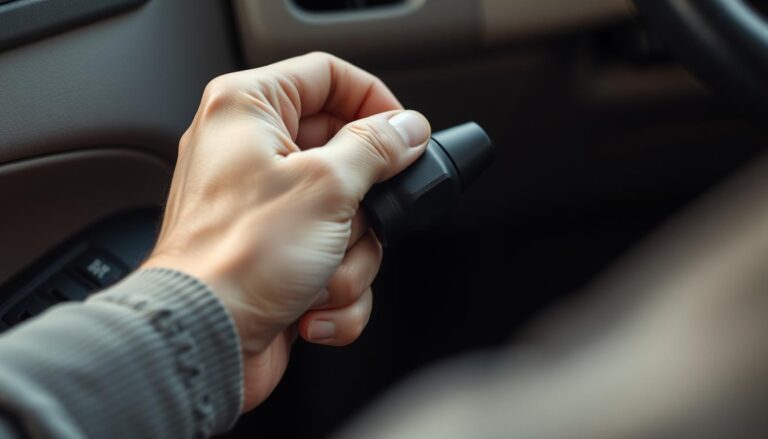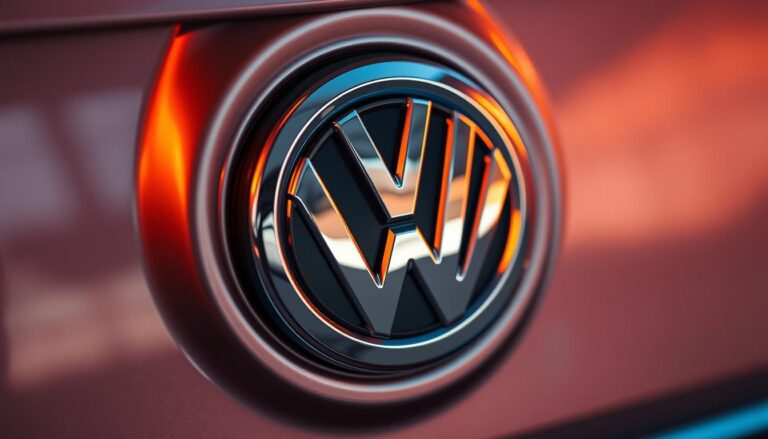In the realm of electrical connections, the selection of grease is paramount. Dielectric grease and bulb grease stand out as premier choices, each boasting distinct attributes and functionalities. This dichotomy underscores the necessity of aligning grease selection with specific application requirements.
Dielectric grease, a silicone-based formulation, is engineered for electrical connections. It offers a waterproof seal and acts as a corrosion deterrent. In contrast, bulb grease, predominantly utilized in light bulb sockets, serves to diminish friction and inhibit corrosion.
The selection of the appropriate grease is imperative for the maintenance of electrical connections’ reliability and longevity. This decision impacts the overall performance and durability of your electrical systems.
Key Takeaways
- Dielectric grease provides a waterproof seal for electrical connections.
- Bulb grease reduces friction and prevents corrosion on light bulb sockets.
- Using the right type of grease is crucial for reliable performance.
- Dielectric grease is silicone-based, making it suitable for electrical applications.
- Choosing the wrong grease can lead to poor electrical connections.
What Are Dielectric and Bulb Greases?
To effectively compare dielectric grease and bulb grease, it is imperative to first elucidate their distinct properties and applications. Both are specialized lubricants, utilized predominantly within the electrical and automotive sectors.
Definition and Basic Properties of Dielectric Grease
Dielectric grease, commonly referred to as silicone grease, exhibits electrical insulation and waterproofing capabilities. It is formulated from a blend of silicone oil and a thickening agent. This grease is employed to safeguard electrical connections against corrosion and to ensure insulation. Its fundamental attributes encompass superior dielectric strength, thermal stability, and chemical resistance.

Definition and Basic Properties of Bulb Grease
In contrast, bulb grease is meticulously crafted for automotive lighting applications. It is formulated to be compatible with the materials found in light bulbs and their sockets. Bulb grease is engineered to reduce friction and prevent corrosion in bulb sockets, thus ensuring the reliability of electrical connections. Its properties frequently include anti-seize characteristics and high-temperature resistance.
| Property | Dielectric Grease | Bulb Grease |
|---|---|---|
| Primary Use | Electrical insulation and protection | Automotive lighting applications |
| Key Characteristics | Electrically insulating, waterproof | Anti-seize, high temperature resistance |
Chemical Composition and Characteristics
An in-depth analysis of the chemical composition of dielectric and bulb greases is imperative for assessing their efficacy across diverse applications. The distinct chemical formulations of these greases dictate their inherent properties and suitability for specific tasks.
Dielectric Grease Composition
Dielectric grease is predominantly formulated with a silicone base, which endows it with its distinctive attributes. The silicone base is pivotal in conferring dielectric properties, rendering it an exemplary insulator.
Silicone Base Properties
The silicone base in dielectric grease exhibits excellent thermal stability and resistance to moisture, positioning it as an optimal choice for electrical applications. Its high dielectric strength ensures its capacity to endure high voltages without degradation.
Additives and Their Functions
Dielectric grease incorporates additives to augment its performance. These additives encompass thickeners to modulate its viscosity and antioxidants to mitigate degradation over time. The synergy between the silicone base and these additives imparts dielectric grease with long-lasting protective properties.

Bulb Grease Composition
Conversely, bulb grease is formulated with a petroleum base. This base imparts the grease with its characteristic attributes, including conductivity in certain formulations.
Petroleum Base Properties
The petroleum base in bulb grease is renowned for its good lubricating properties and compatibility with various materials employed in lighting systems. Notwithstanding, it may not rival the thermal stability of silicone-based greases.
Conductive Elements
Some bulb greases incorporate conductive elements to augment their electrical conductivity. These elements are indispensable for ensuring optimal contact between the bulb and its socket, thus enhancing the lighting system’s performance.
In conclusion, the chemical composition of dielectric and bulb greases exhibits marked differences, influencing their characteristics and applications. Dielectric grease, formulated with a silicone base, is ideal for electrical insulation and protection. In contrast, bulb grease, often with a petroleum base, is utilized for lubrication and conductivity in lighting systems.
Primary Uses and Applications
The versatility of dielectric and bulb greases is evident in their wide range of applications, from electrical connectors to automotive lighting systems. These greases are designed to serve specific purposes, and their applications highlight their unique benefits.
Common Applications for Dielectric Grease
Dielectric grease is widely used in various electrical applications due to its insulating properties and ability to protect against moisture.
Electrical Connectors and Terminals
Dielectric grease is applied to electrical connectors and terminals to prevent corrosion and ensure reliable connections. It fills the microscopic gaps between the connector parts, providing a barrier against moisture and contaminants.
Weather Sealing Applications
In addition to electrical applications, dielectric grease is used for weather sealing. It is applied to seals and gaskets to enhance their effectiveness in preventing water ingress, thus protecting sensitive components from environmental damage.
Common Applications for Bulb Grease
Bulb grease, on the other hand, is designed for use in lighting applications, with a focus on the automotive sector.
Light Bulb Connections
Bulb grease is used to lubricate and protect the connections of light bulbs, ensuring good electrical contact and preventing corrosion. This is crucial in harsh environments where bulbs are exposed to vibration, temperature fluctuations, and moisture.
Automotive Lighting Systems
In automotive lighting systems, bulb grease plays a crucial role in maintaining the integrity of the electrical connections. It helps to prevent the buildup of corrosion and ensures that the lighting system functions reliably over time.
| Application | Dielectric Grease | Bulb Grease |
|---|---|---|
| Electrical Connectors | Used for insulation and corrosion protection | Not typically used |
| Light Bulb Connections | Not typically used | Used for lubrication and corrosion protection |
| Weather Sealing | Used to enhance seal effectiveness | Not typically used |
| Automotive Lighting | Not typically used | Used to maintain electrical connection integrity |
Dielectric Grease vs Bulb Grease: Which One Works Better?
To ascertain the superior grease, a direct comparison between dielectric and bulb greases is imperative. This evaluation will hinge on their inherent properties and the contexts in which they are applied, as previously elucidated.
Direct Performance Comparison
Dielectric grease distinguishes itself through its superior electrical insulation capabilities and thermal resilience. It is predominantly utilized in automotive and electrical domains to safeguard connections against corrosion and mechanical degradation. In contrast, bulb grease is meticulously formulated for light bulb sockets, ensuring a steadfast connection and corrosion mitigation.
Dielectric grease outperforms in scenarios characterized by elevated temperatures, offering enduring corrosion resistance. Bulb grease, though efficacious in its designated role, may not provide analogous protection in extreme thermal conditions.
Situational Effectiveness
The selection between dielectric grease and bulb grease is contingent upon the application’s specific demands. For electrical connections subject to high temperatures or adverse environments, dielectric grease emerges as the preferred option.
When to Choose Dielectric Grease
Dielectric grease is the quintessential choice for automotive electrical systems, outdoor electrical connections, and any scenario necessitating high-temperature resistance. Its comprehensive protective attributes render it adaptable across a myriad of applications.
When to Choose Bulb Grease
Bulb grease, on the other hand, is exclusively tailored for light bulb sockets. It guarantees a reliable connection and corrosion prevention, positioning it as the optimal solution for this specific application.
In summary, the determination between dielectric grease and bulb grease must be predicated on the application’s unique requirements. By grasping the distinct advantages and limitations of each, users can make a judicious selection, ensuring optimal functionality and durability.
Electrical Conductivity Properties
Electrical conductivity is a pivotal factor in assessing the appropriateness of dielectric grease versus bulb grease for particular applications.
How Dielectric Grease Affects Electrical Connections
Dielectric grease is renowned for its insulating properties, which profoundly influence electrical connections.
Insulation Properties
The primary role of dielectric grease is to serve as an insulator, hindering the passage of electrical current. This characteristic renders it exemplary for scenarios necessitating electrical insulation.
Contact Point Considerations
Utilizing dielectric grease necessitates a meticulous examination of electrical connection contact points. It is imperative to avoid application to these areas, as it can lead to signal degradation or connection failure.
How Bulb Grease Affects Electrical Connections
Conversely, bulb grease is formulated to augment electrical connections, predominantly in lighting contexts.
Conductive Properties
Bulb grease is engineered to be conductive, enabling the facilitation of electrical current flow. This attribute is paramount for ensuring reliable connections.
Current Flow Impact
The conductive essence of bulb grease guarantees unimpeded electrical current flow, rendering it apt for scenarios demanding high conductivity.
| Property | Dielectric Grease | Bulb Grease |
|---|---|---|
| Electrical Conductivity | Low/Insulating | High/Conductive |
| Application | Insulation, Protection | Lighting, Connections |
| Contact Point Suitability | No | Yes |
Temperature Resistance and Performance
The operating temperature range is a critical factor in choosing between dielectric and bulb greases. Both types of greases are used in various applications where temperature variations are significant.
Dielectric Grease Temperature Range
Dielectric grease is renowned for its extensive temperature range, typically operating effectively from -40°C to over 200°C. This makes it suitable for high-temperature applications, such as in automotive electrical systems. The high-temperature resistance of dielectric grease ensures that it remains effective in extreme conditions.
Bulb Grease Temperature Range
Bulb grease, on the other hand, is generally used in applications with more moderate temperature ranges. It typically operates effectively between -20°C to 150°C. While it can handle a range of temperatures, it may not perform as well as dielectric grease in extreme heat or cold. The temperature stability of bulb grease makes it suitable for lighting applications.
In summary, dielectric grease has a broader temperature range compared to bulb grease, making it more versatile for various applications. Understanding the temperature resistance of both greases is essential for selecting the right product for specific needs.
Automotive Applications and Compatibility
Vehicles necessitate diverse greases to uphold their electrical and lighting apparatus, with dielectric and bulb greases being indispensable. The automotive sector employs these greases across various applications, each fulfilling distinct roles.
Dielectric Grease in Vehicle Electrical Systems
Dielectric grease is pivotal in vehicle electrical systems, offering insulation and safeguarding against moisture and corrosion.
Battery Terminals and Connections
Application of dielectric grease to battery terminals averts corrosion, ensuring a pristine, secure connection. This is critical for preserving the vehicle’s electrical system integrity.
Spark Plug Boots and Ignition Systems
Dielectric grease is also employed on spark plug boots to bar moisture intrusion and guarantee a snug fit, thus preserving the ignition system’s efficacy.
Bulb Grease in Vehicle Lighting
Bulb grease is crafted for vehicle lighting systems, offering a seal against moisture and aiding in bulb longevity.
Headlight and Taillight Applications
In headlight and taillight assemblies, bulb grease seals bulb sockets, thwarting water intrusion and corrosion risk.
Dashboard Indicator Lights
For dashboard indicator lights, bulb grease ensures connections remain secure and corrosion-free, upholding these critical indicators’ reliability.
The deployment of dielectric and bulb greases in automotive contexts is crucial for sustaining the dependability and performance of vehicle electrical and lighting systems. By grasping their specific applications and advantages, vehicle proprietors can enhance their vehicle’s upkeep.
Material Compatibility and Longevity
The compatibility of dielectric grease and bulb grease with various materials is paramount for their efficacious application. Ensuring compatibility guarantees the longevity and superior performance of the components and connections they serve.
Dielectric Grease Compatibility
Dielectric grease exhibits versatility and compatibility across a spectrum of materials. It is notably beneficial in contexts involving plastic and rubber components.
Plastic and Rubber Components
Dielectric grease is generally compatible with the majority of plastics and rubbers employed in electrical contexts. It serves to shield these materials from moisture and environmental deterioration, thus augmenting their longevity. It is imperative, though, to verify compatibility with specific plastics and rubbers to circumvent any detrimental interactions.
Metal Surfaces
Dielectric grease is also compatible with a variety of metal surfaces, offering a protective barrier against corrosion and augmenting electrical insulation properties. It is frequently employed on metal connectors and terminals to guarantee dependable connections.
Bulb Grease Compatibility
Bulb grease, conversely, is tailored for use in lighting applications, notably where glass and ceramic surfaces are present.
Glass and Ceramic Surfaces
Bulb grease is formulated to be compatible with glass and ceramic materials, ensuring a secure and watertight seal. This is vital for preserving the integrity of lighting fixtures and preventing moisture ingress.
Metal Contact Points
In addition to its compatibility with glass and ceramics, bulb grease is also designed to function effectively with metal contact points. It aids in diminishing wear and tear on these contacts, enhancing the overall performance and longevity of the lighting system.
In conclusion, both dielectric grease and bulb grease possess specific material compatibilities, rendering them suitable for distinct applications. Grasping these compatibilities is crucial for optimizing their efficacy and ensuring the enduring functionality of the systems they are integrated into.
Application Methods and Best Practices
The efficacious deployment of dielectric and bulb greases necessitates an in-depth comprehension of their application methodologies and techniques. The correct application is paramount for guaranteeing these greases function optimally within diverse electrical and automotive environments.
How to Properly Apply Dielectric Grease
Dielectric grease application mandates the utilization of appropriate tools and methodologies to circumvent contamination and ensure uniform coverage. Cleanliness is paramount when applying dielectric grease to electrical connections.
Application Tools and Techniques
Employ a small, immaculate brush or applicator for the application of a thin, uniform layer of dielectric grease. This methodology prevents excess grease from attracting dirt.
Common Application Mistakes to Avoid
Excessive application of dielectric grease can result in messy connections and attract contaminants. It is imperative to avoid applying dielectric grease to dirty or corroded connections without prior cleaning.
How to Properly Apply Bulb Grease
Bulb grease application necessitates precision to ensure proper contact and heat dissipation. The correct quantity of bulb grease must be employed to avoid overheating or insufficient lubrication.
Correct Amount to Use
Employ just sufficient bulb grease to coat the base of the bulb and the socket. Excess grease can melt and precipitate issues with the lighting system.
Application Process Step-by-Step
Initiate by cleaning the bulb base and socket. Subsequently, apply a small quantity of bulb grease to the base, and insert it into the socket. Ensure proper seating to maximize contact and heat dissipation.
| Application Aspect | Dielectric Grease | Bulb Grease |
|---|---|---|
| Primary Use | Electrical connections | Lighting systems |
| Application Tool | Small brush or applicator | Fingers or small applicator |
| Key Consideration | Avoid contamination | Correct amount is crucial |
Conclusion
In the realm of lubrication, the distinction between dielectric grease and bulb grease is paramount. Dielectric grease is engineered for electrical insulation and moisture protection, rendering it superior for vehicle electrical systems and other delicate electronic components. Its unique formulation ensures optimal performance in these high-stakes environments.
Conversely, bulb grease is tailored for applications subjected to extreme temperatures, a characteristic that makes it indispensable in vehicle lighting systems. Its ability to maintain integrity under such conditions underscores its value in ensuring consistent performance.
The selection of grease hinges on the application’s specific demands. Electrical conductivity, temperature resilience, and material compatibility are critical considerations. By grasping the nuances of each grease type, one can make judicious choices, guaranteeing the longevity and efficacy of their equipment.
Ultimately, the choice between dielectric grease and bulb grease is contingent upon the application’s particular requirements. Opting for the correct grease is a strategic move that bolsters the reliability and efficiency of electrical systems and components.
FAQ
What is the main difference between dielectric grease and bulb grease?
Dielectric grease is distinguished by its insulating properties, making it ideal for applications involving electrical connectors and terminals. In contrast, bulb grease is characterized by its conductive nature, rendering it more suitable for connections within light bulb assemblies and automotive lighting systems.
Can I use dielectric grease on light bulb connections?
No, dielectric grease is not advisable for light bulb connections due to its insulating properties, which can impede proper contact. Instead, bulb grease, with its conductive properties, is more appropriate for such applications.
Is dielectric grease safe to use with plastic and rubber components?
Yes, dielectric grease is generally compatible with plastic and rubber components, making it suitable for a variety of electrical applications where these materials are present.
Can bulb grease be used in high-temperature applications?
Bulb grease operates effectively within a specific temperature range. It is crucial to verify the specifications of the particular bulb grease product to ensure it can withstand the temperatures it will encounter in your application.
How do I apply dielectric grease correctly?
To apply dielectric grease correctly, utilize a small amount on the electrical connector or terminal, ensuring a complete coating without excess, as surplus grease can attract dirt and debris.
What are the benefits of using dielectric grease on electrical connectors?
Dielectric grease protects electrical connectors from corrosion, moisture, and wear, ensuring reliable electrical connections over time.
Can I use bulb grease on battery terminals?
No, bulb grease is not recommended for battery terminals. Instead, dielectric grease or other specialized products are more suitable for battery terminals due to their properties and the need for a clean, conductive connection.
How does temperature resistance affect the performance of dielectric and bulb greases?
Both dielectric and bulb greases have specific temperature ranges within which they are effective. Dielectric grease generally performs well across a broad temperature range, while bulb grease may have more limited temperature tolerance, depending on its formulation.
Are there any specific application methods for bulb grease?
Yes, when applying bulb grease, utilize a small, correct amount to coat the light bulb connection or automotive lighting component, adhering to the manufacturer’s instructions for optimal results.
What happens if I use the wrong type of grease in my application?
Utilizing the wrong type of grease can result in poor performance, corrosion, or failure of the electrical connection or component. It is imperative to select the appropriate grease based on the specific requirements of your application.


